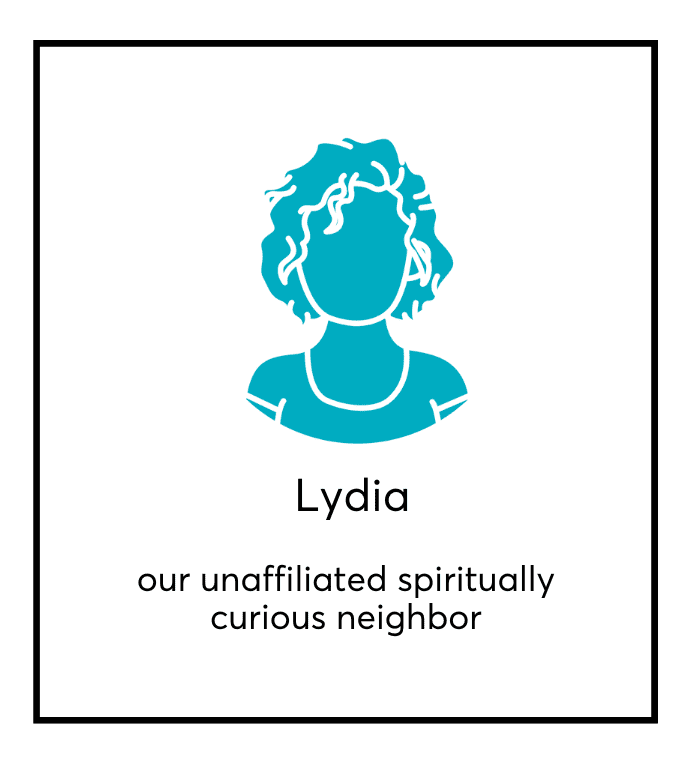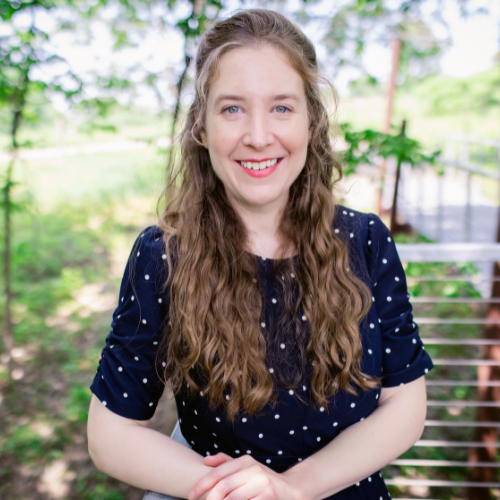The landscape of Christianity is changing as more people step away from the church or never enter it at all. But among these so-called “nones” and “dones” is a field of fertile ground. God is stirring up people who long for spiritual truth. Though they aren’t part of a faith community, they are ready to hear about the gospel of Jesus. And they are the neighbors to whom the church is called.
Let’s look at one of these spiritually curious individuals. As you read the following scenario, pay attention to the thoughts, emotions, and motivations of the central figure. She’s important, and we’ll examine her more closely in a moment.
A woman seeking God
The woman awoke early and smiled to herself as she prepared for the day. It had been another profitable week for her business. She had closed a major deal by selling a large amount of custom fabric to a new client. The income would provide much-needed economic security for her family members and employees. The woman felt relief and gratitude for her success. So much depended on her as the head of her household, and the timing of this transaction would allow her to devote a little more time to her other interests.
For much of her life, the woman had heard stories about the one true God. The more she heard, the more intrigued she became. There were other women in the city like her, too, who were curious about God. She and the others had started gathering at the outskirts of the city, assembling beside the river to pray. They had sought guidance from the religious leaders, but when the women showed up at the local meetings, it caused tension for everyone. The river seemed like the best place to meet for now. So the woman stepped out into the street and headed towards the city gate, eagerly anticipating being present with others who shared her passion—people who were seeking God like she was.
____________
This imagined scene could describe someone in your neighborhood, town, or city who is spiritually curious—someone who genuinely wants to know who God is. But this particular story offers a fictitious peek into the inner life of the biblical woman known as Lydia.
Who was Lydia?
Lydia appears in only three verses in the Bible (Acts 16:14-15 and Acts 16:40). Yet the brevity of her story contrasts with the enormous influence she had on the early Christian church. She was originally from Thyatira in Asia Minor and she encountered Paul and his missionary friends at the river near her new home in Philippi (modern-day Greece). The message they brought to her about Jesus dramatically transformed not only her life but also the trajectory of the early church.
Paul and his companions (Silas, and later Timothy and possibly Luke) had embarked on his second missionary journey, setting out from Jerusalem to travel across Asia Minor and spread the gospel. After enjoying some initial success, the trip became characterized by false starts and detours as the Holy Spirit thwarted their momentum (Acts 16:6-8). Paul then had a vision of a man from Macedonia asking for their help (Acts 16:9). The group faithfully set out and when they arrived in the Macedonian city of Philippi, they found not a man but a woman whom God had prepared to hear about Jesus. Lydia not only received their message, but she and her entire household were baptized. She then opened her home to the travelers and invited them to stay with her.
Describing Lydia
Lydia was a woman of firsts. She was the first European gentile convert to Christianity, and she was the first member of the church in Philippi. We see her again in the text in Acts 16:40 when Paul and his friends return to her home once more before continuing on their journey across Greece. We learn from this short verse that other believers were meeting in Lydia’s house. Her residence had already become the base of operations for the Philippian church.
Interestingly, nothing about Lydia was entirely typical. She was an urbanite, moving her entire family from the city of Thyatira to the city of Philippi. She was a woman running her own trade business and serving as the sole head of her household. As a dealer of expensive purple cloth, a textile usually reserved for royalty and the elite, she was probably at least economically comfortable. She may even have become a financial supporter of Paul’s ministry. In providing her home as a meeting space, she helped launch the first Christian church in Europe.
Most importantly, she was genuinely interested in seeking God. The text describes her as a “worshiper of God” (Acts 16:14a). Lydia didn’t just listen politely to Paul as he spoke, nodding her head absently while she waited for him to finish. She was eager and attentive. She embraced Paul’s teaching and was moved by God’s Spirit to accept the truth about Jesus. Though she might not have seemed like an ideal candidate to plant a church, through her God established a congregation whose influence echoes through the rest of the New Testament and beyond.
Finding your Lydias
The Lydias of today matter because they are the church of tomorrow. They are our spiritually curious neighbors: the people who long to know God but who are disconnected from a traditional community of faith. Their road to Christ, and the way they practice and live out their faith, may look very different from what longtime Christians expect. Remember that Lydia met Paul outside the gates of the city. She and the other women weren’t found in the synagogue. We might need to adjust our expectations of what faithful people look like so we can begin to notice the Lydias among us. God has given us the mission of sharing the good news with them. We can offer our neighbors what will truly satisfy them—the hope we have in Jesus.
Paul gives us a clue for how to find them. He and his companions only met Lydia because God led them to her. You might ask the Holy Spirit to reveal the Lydias in your community. They may be on your block, at your job, in your apartment building, at your kid’s school, in your exercise class, or at the grocery store. You’ll know them because they are open to the things of God. And you might be the person God is preparing to talk with them.
Engaging with Lydia
Once you’ve identified the Lydias around you, what is your next step? How do you actually engage with your spiritually curious neighbors?
Here are some practical ideas:
- Listen. The opening story revealed some of the hopes, dreams, and fears of an imagined Lydia. Do you know what keeps your Lydias up at night? Talk to your neighbors and learn about what matters to them. Ask about their lives. And then listen—really listen—to what they have to say. Your goal is not to fix them, or to figure out how Jesus can fix them. Instead, offer your authentic presence and build a real relationship with them. Love them as God loves you.
- Pray. Intercede on behalf of your Lydias. Ask them for prayer requests and tell them you’re praying for them. You can also ask God to help you pray for what your Lydias truly need. Listen to what God reveals to you and follow the leading of the Holy Spirit as you connect with your spiritually curious neighbors.
- Receive. Paul met Lydia right where she was. He didn’t insist that she join him at the synagogue. Instead, he sat with her and the other woman at the river, and then he and his friends were hosted by Lydia in her context. Paul received hospitality rather than extending it. For your Lydias, a church environment might not be comfortable for them. How might you get to know people in their spaces rather than yours?
God loves the Lydias of this world, and some of them will become part of the next generation of Christian followers and leaders. We have a responsibility to share our hope in Jesus with the spiritually curious neighbors in our spheres of influence. Let’s keep our eyes open and our hearts ready for an opportunity to sit with them at the river.
For further reading
Learn more about Lydia and explore practical ways to engage with your spiritually curious neighbors in Leading Faithful Innovation: Following God into a Hopeful Future (Fortress 2023) by Dwight Zscheile, Michael Binder, and Tessa Pinkstaff.





